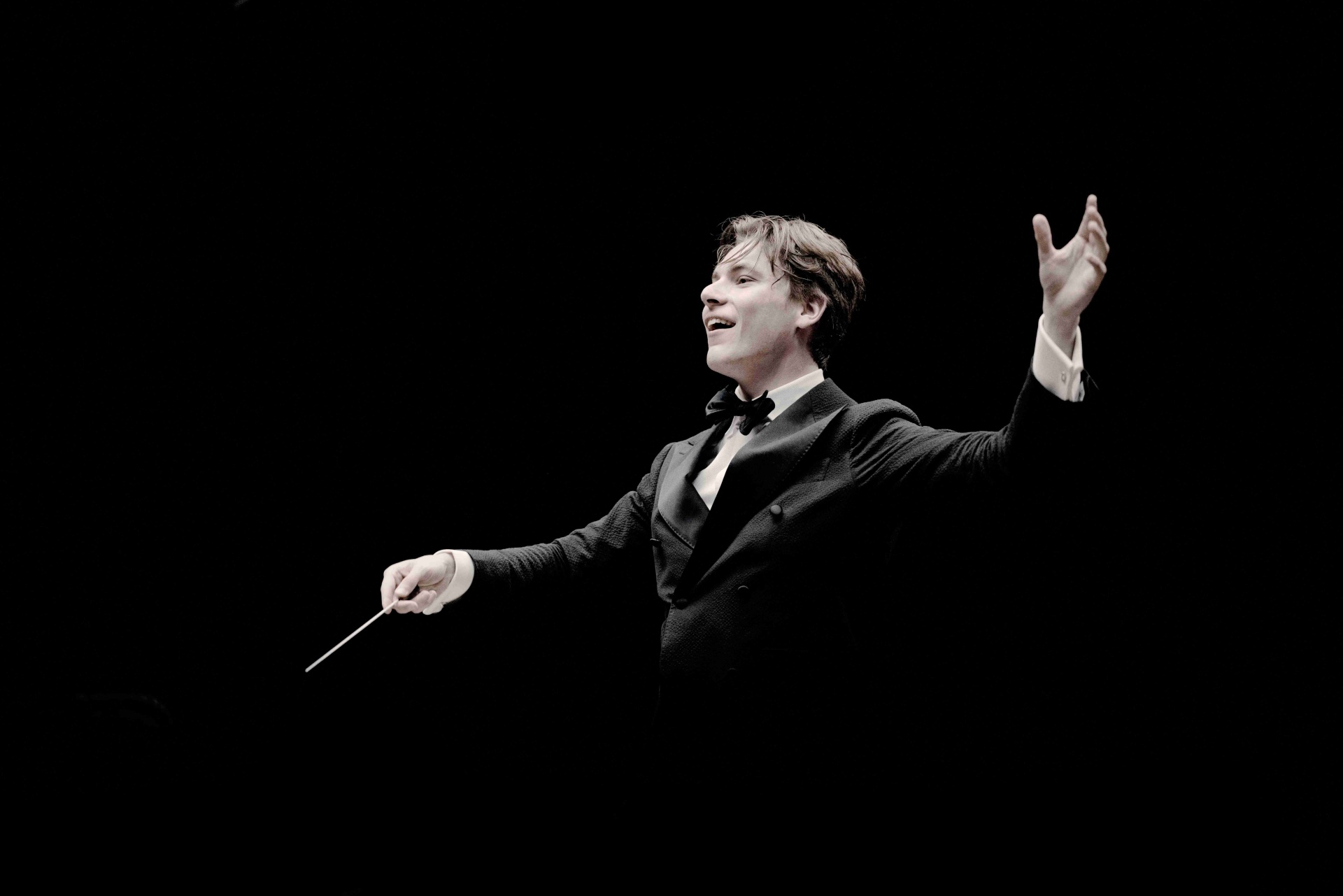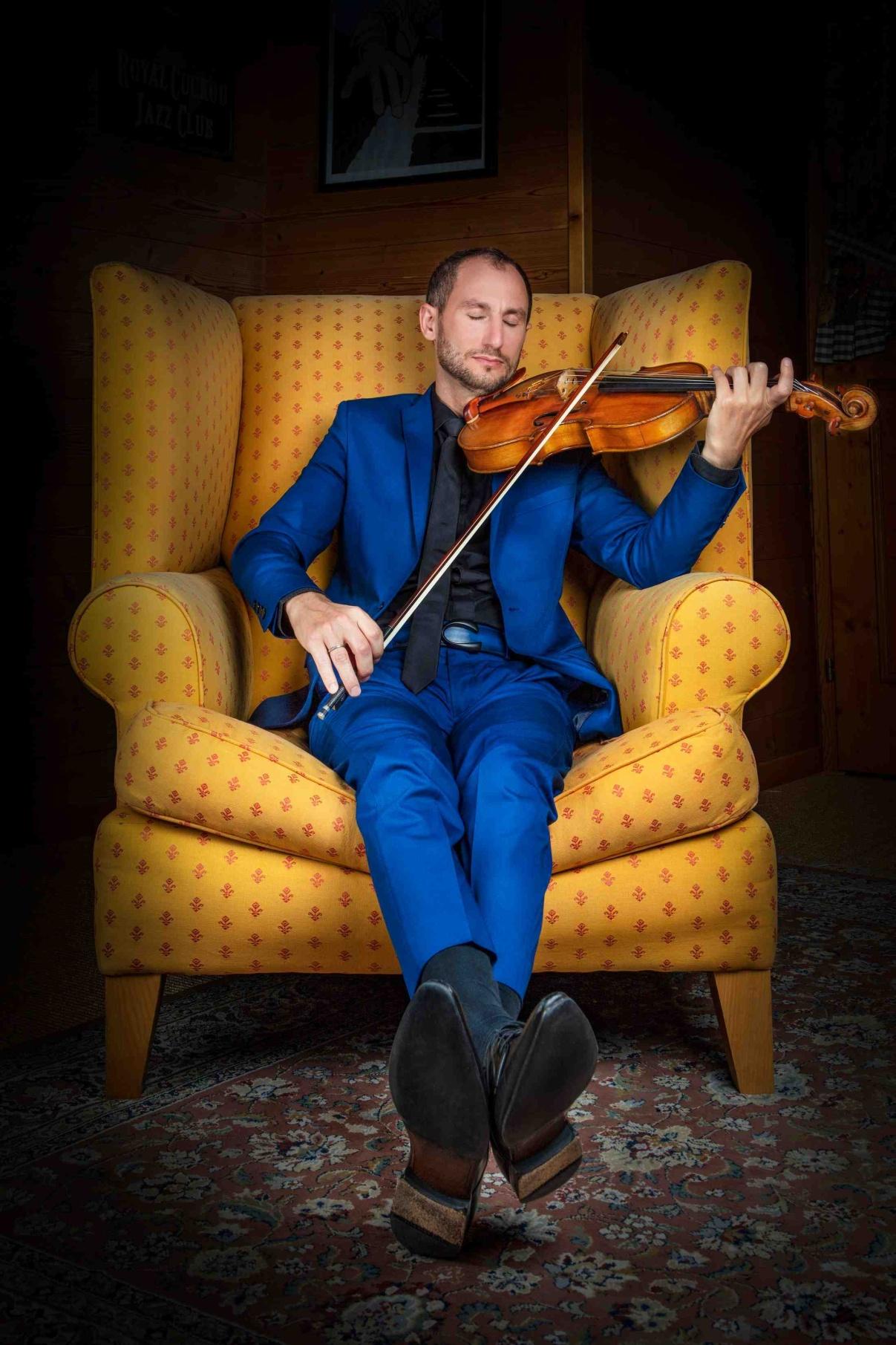CZECH PHILHARMONIC MÄKELÄ & TAMESTIT
Pre-Concert Talk: Antoine Tamestit at 7 pm.
Programme
- Alfred Schnittke: Concerto for Viola and Orchestra
- Gustav Mahler: Symphony No. 1 in D major "Titan"
Performers
- Czech Philharmonic
- Klaus Mäkelä – conductor
- Antoine Tamestit – viola (Artist-in-Residence)
In the spring of 2022 the Concertgebouw Amsterdam announced that Finnish conductor Klaus Mäkelä would assume the post of Chief Conductor in 2027, creating major musical headlines around the world. Aged only twenty-six, the Finnish artist, currently Chief Conductor of the Oslo Philharmonic and Music Director of the Orchestre de Paris, has cemented his position as one of the world’s most sought-after conductors. Mäkelä will give his Czech debut at the Prague Spring festival, when he conducts the Czech Philharmonic in Mahler’s monumental Symphony No. 1, and in Alfred Schnittke’s Viola Concerto he will accompany Artist-in-Residence Antoine Tamestit.

Highlights of Klaus Mäkelä’s current season include a performance with the Oslo Philharmonic and pianist Yuja Wang at the BBC Proms, and his April debut with the Berlin Philharmonic. The conductor’s broad repertoire traces an arc from Bach to the premieres of works by contemporary composers. The music of Gustav Mahler also plays an important role. Mäkelä performed his Symphony No. 1 in D major, known as “Titan”, with his Orchestre de Paris at a closely monitored concert held in the Paris Philharmonic hall. Le Figaro wrote that “the suppleness of the conducting, the warm opulence of sound, the continuity of the phrasing, all blossomed in the sound space of the Philharmonie. For its part, Le Monde stated that “the conductor likes to emphasise sounds that are voluntarily rustic or rocky, as if he wanted his Mahler to be as un-metaphysical as possible, with both feet firmly planted in the Bohemian soil. The generous use of rubato requires the musicians to concentrate at all times […] making the finale an absolutely jubilant and justly acclaimed triumphal march.”

Soon after the premiere given by Russian violist Yuri Bashmet, who was accompanied by the Concertgebouw Orchestra, Alfred Schnittke’s concerto became one of the most important works ever written for the viola. The piece was also pivotal for the composer himself : “In a certain respect, the piece has the character of a – temporary – farewell. For ten days after finishing work on it, I was placed in a situation from which there was hardly any way out. I could only slowly enter a second phase of life, a phase through which I am still passing. Like a premonition of what was to come, the music took on the character of a restless chase through life (in the second movement) and that of a slow and sad overview of life on the threshold of death (in the third movement).” Schnittke’s Viola Concerto has particular significance for Antoine Tamestit as well. “I spent much time studying the piece and I developed a strong bond with it,” the violist tells us. “Over the course of several meetings, I found out all kinds of things about the concerto from Tabea Zimmermann and Yuri Bashmet, for whom the work was written. But I wanted to form my own opinion about every small detail, so that I’d know what I wanted to express and, above all, what Schnittke wanted to express in a work that is so profound and so powerful,” he explains. “He tells of pain, sorrow and despair, of the conflict between his own roots and government repression, of defiance on a philosophical level, and perhaps he also speaks of the extent to which you have to struggle in life in order to find your place in the world.” Tamestit has recorded Alfred Schnittke’s Viola Concerto on CD and has performed the piece with illustrious orchestras and conductors, such as the Vienna Philharmonic under Kirill Petrenko and the SWR Symphonieorchester under Teodor Currentzis. “The passionate intensity of Tamestit’s playing and his purity of tone were exceptional,” wrote a Bachtrack website reviewer of his interpretation of this masterpiece.
Read the profile of the festival’s artist-in-residence, Antoine Tamestit.








